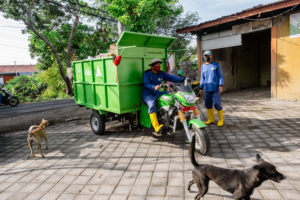How a recent visit to Bali is catalyzing our innovative scaling plans
What exactly does Delterra do on the ground to fix broken waste and recycling systems?
Join us on a journey to an urban neighborhood in Bali, Indonesia, where Delterra has been working over the past three years to pilot solutions to the waste crisis. Delterra’s leadership, Indonesia team, and partners recently came together to plan how to best scale the pilots across the island, throughout Indonesia, and to other countries in the region.
The Bali you don’t see on social media
Bali is world famous for its Instagram-able beaches, jungle villas and yoga retreats. It attracts millions of tourists each year and is home to the G20 Leaders’ Summit this November, where it will be the focal point of the world.
It seems like an idyllic hideaway nestled in the eastern Indian Ocean. But for those who call it home, they know the day-to-day realities can be anything but idyllic.
One of those realities is the growing amount of plastic pollution and other waste adding to the already overcapacity landfill and spilling out into the environment and ocean.
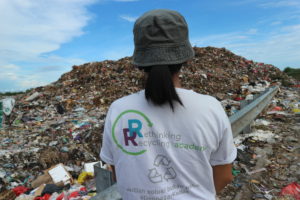
Like many nations in the global south with a history of colonization, Indonesia lacks the investment, infrastructure and systems needed to properly manage waste. The Indonesia National Plastic Action Partnership estimates that eliminating plastic waste “requires capital investments of around $18 billion for waste management and recycling between 2017 and 2040, and an estimated $1 billion per year increase in operational financing for solid waste management systems by 2040”.
But since “waste” is composed of materials that have value and could be put into productive use in the circular economy, the reports argues that this is not all sunk costs: “The investment opportunity into circular economy sectors could grow to about $10 billion per year in revenue by 2040, driven by increased sales of recycled plastic, substitutable materials and revenue from new business models.”
But who exactly will do the work to fix these broken systems, develop these new business models and unlock the circular economy potential?
Our proof-of-concept solution
That’s where Delterra comes in. But we don’t do it alone. We bring together a range of partners, including community members, local leaders, businesses, and government. This work is enabled and empowered by our funding partners, including the Alliance to End Plastic Waste, the Indonesian Packaging Recovery Organization (IPRO) and McKinsey & Company, among others.
By combining a problem-solving approach and systems-change perspective, Delterra has been working to create community-owned and economically-sustainable models that can be scaled.
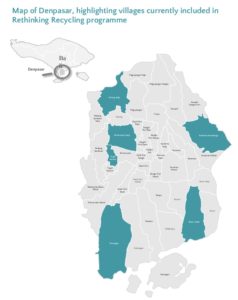
Each village, or “desa”, operates in somewhat of an independent political structure –still part of the elected system throughout the country, but also adhering to hereditary practices that have existed for centuries. There are over 700 desas in Bali and each one runs its own waste and recycling system. Because of the political environment, consolidation of the desas into one, island-wide system is not possible.
That is why Delterra, with the support of our partners, started with six desas to see if we could pilot a viable waste and recycling system for them. These are meant to be a proof-of-concept that could be more easily rolled out across the island and throughout the country.
The on-the-ground realities of fixing a broken system
Most households were not separating waste, so Delterra introduced colored bins (green, yellow, red) and behavior change initiatives, including door-to-door education on separating waste into recycling, organics, and landfill. We recruited the help of local leaders to reinforce these behaviors, which proved to be an effective and critical component.
The team works with local recycling centers to collect waste and recyclable material from the bins, charging a small fee for the pick up service. Fees and waste are typically collected on a private arrangement (versus through municipal taxes and management in other countries), and this has created an informal market that is incentivized by collection fees and materials that command a value – everything else goes to landfill.
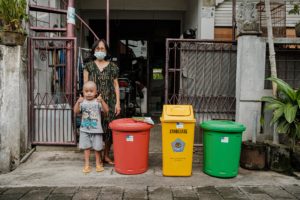
In 2017 we launched the Rethinking Recycling Academy, a business accelerator program that aims to create value for collection and avoid as many materials as possible going into the landfill. The program includes a custom financial operations platform, user training, and financial literacy for the community-owned recycling centers.
Once materials get to the recycling centers, we train the waste workers to further separate the different streams and sell materials to buyers, where there is a market. This works well for metals, glass, and certain types of plastics (e.g., PET – plastic bottles). Up to 80% of the waste stream is organic, where there are currently few buyers (e.g. for compost). This is also true of the lower-value plastics (flexible and soft plastics).
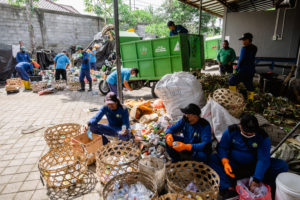
We have been successful at helping citizens separate their waste and building viable businesses that are owned and operated by the community.
More than 60% of people participating in the program now separate their waste for recycling – the highest in Indonesia and above average globally. We’ve proven that a lot can be done from the ground-up with local buy-in and optimizing existing infrastructure. Sometimes the best solutions are not radical upheavals of the entire system, but better ways of managing waste that benefit communities and the environment.
This local ownership is most likely to provide lasting change and enable Delterra to step back and focus on other regions. These six communities were just the proof-of-concept. Having learned a lot over the past three years, we’re now able to calibrate and work on scaling the approach to reach more people and make serious progress toward tackling the plastic waste challenge.
Developing scalable solutions together
This was the context for bringing together our leadership team and partners in Bali to figure out how we could scale this model across Bali and Indonesia.
We started with a visit to one of Bali’s largest landfills to understand the scale of the waste challenge and the uncomfortable reality facing the region. The government plans to close the landfill this year.
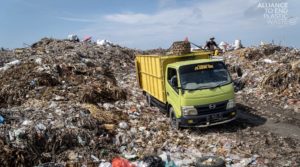
While sobering and eye-opening, visiting the overcapacity landfill is an important reminder of why we do what we do. It was then time to visit one of the recycling centers where Delterra has been working to change the way waste is managed – creating jobs, value and pride in the local communities.
This site, Sanur Kauh, is successfully managing sorted organics and plastics and selling them on to aggregators so that these materials will have a new life in the circular economy. With our help, they are also successfully managing their finances and business model through a combination of revenue from collection fees and material sales.
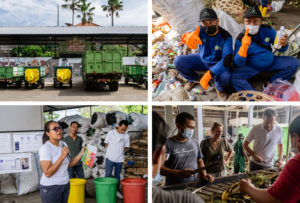
With this on-the-ground context and learning from the pilots, Delterra convened a workshop to share learnings with our partners, including the Alliance to End Plastic Waste and IPRO. These collaborative sessions were to explore options for a scalable model that builds on the learning of our pilot program.
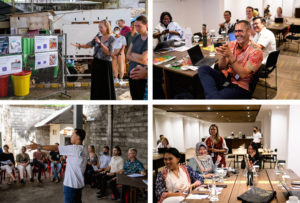
After an intense and productive time with our staff, partners and community members in Bali, we remain focused on developing a waste management model that fits the unique context of Bali.
Watch this space!
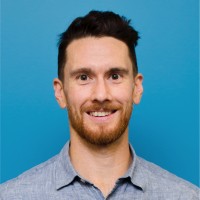 This blog was written and contributed by:
This blog was written and contributed by:
Jeremy Douglas
Director of Partnerships
Delterra
Get in touch

